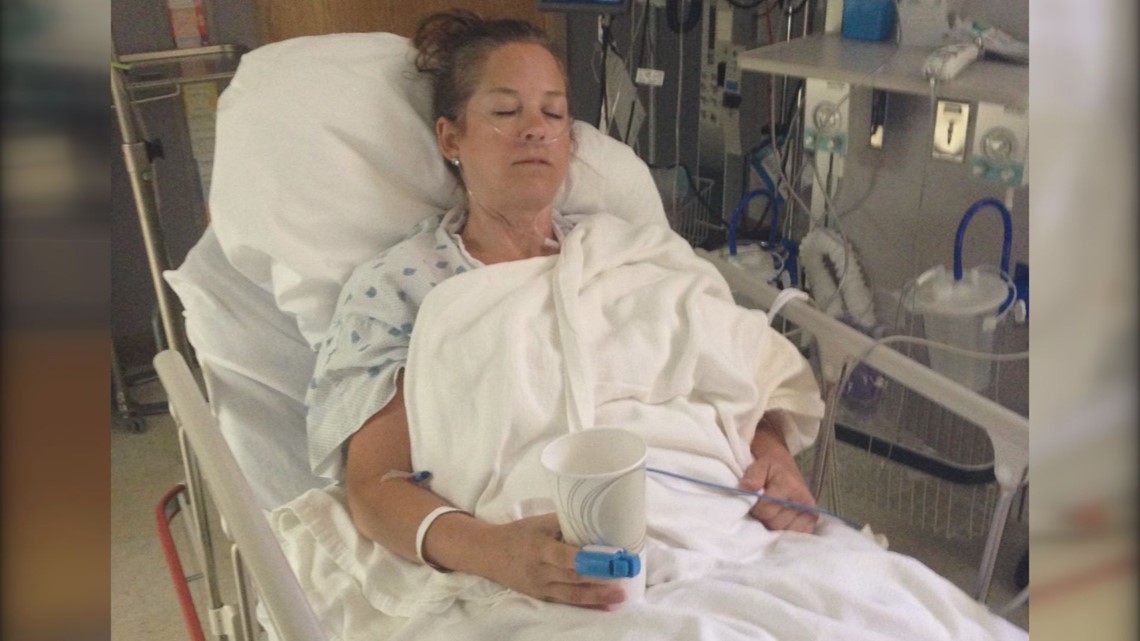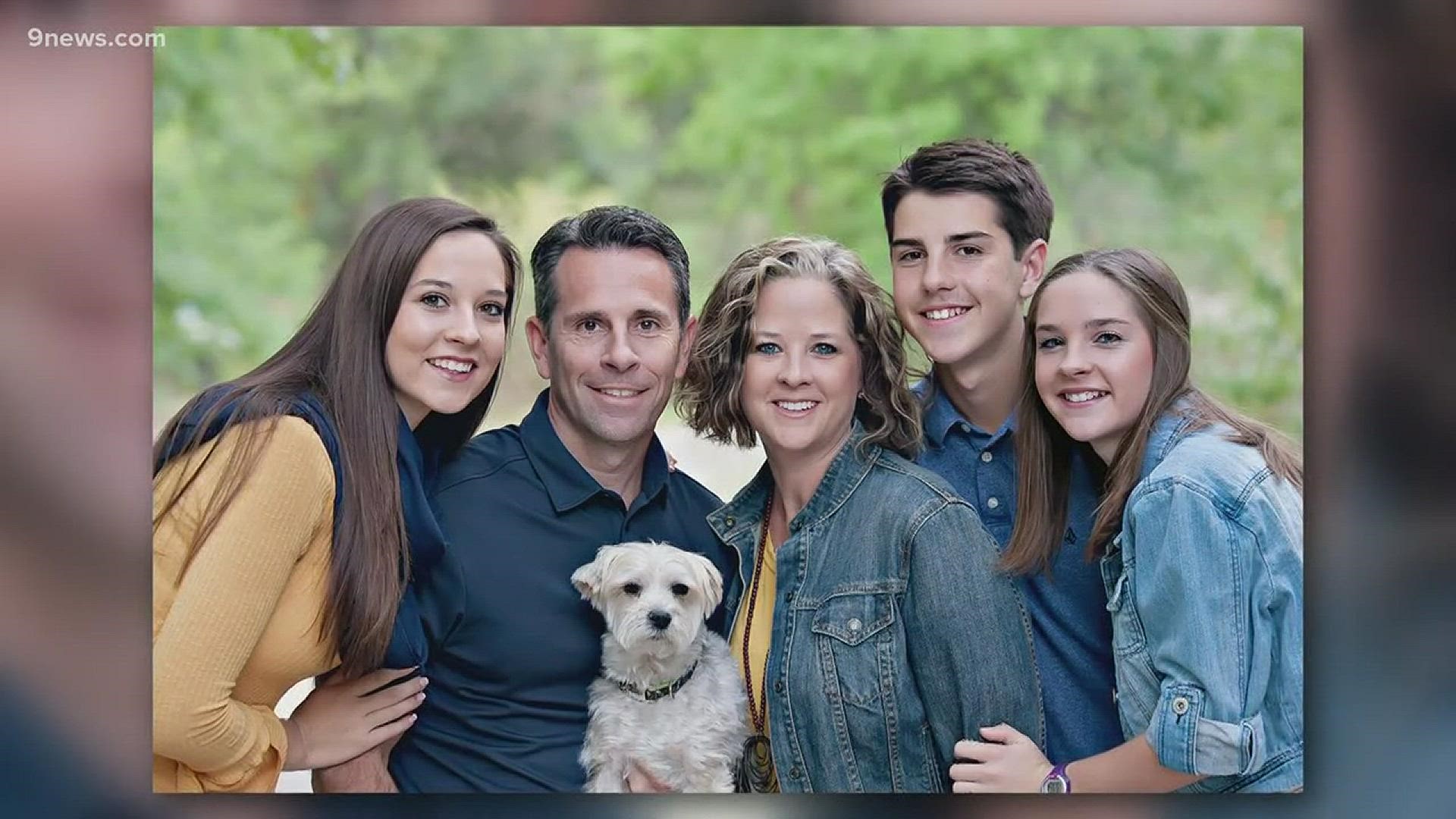DENVER — Jennifer Halvas was in Steamboat Springs with her family enjoying a summer vacation day when she started to develop intense pain in her chest, arm pain and shortness of breath out of the blue.
A couple trips to the Emergency Department (ED) later, Halvas was diagnosed with a spontaneous coronary artery dissection (SCAD). A SCAD is a condition in which a tear develops in one of the arteries which provides blood flow to the heart. A SCAD doesn't cause a heart attack that often, but when it does, it usually happens in women in their 40s or 50s who have no other risk factors.
Halvas is sharing her story to raise awareness about the condition and the effects she faced physically and mentally after her heart attack during American Heart Month, which is February.


Halvas said staff on the first trip to the ED told her she was okay. The next day, she had another episode of crushing chest pain, which went to both arms and her neck. She also had nausea and vomiting, as well as pain to her jaw.
She was reluctant to go back to the emergency department, but said she knew something was not right.
This time around, she was kept in the hospital overnight where doctors told her she was having a heart attack. Her doctor took her to the cardiac catheterization lab the next day. She was diagnosed with a SCAD and was given medications to manage her symptoms.
The following week, while at a sporting event for her daughter she had yet another episode of intense chest pain. Doctors told her she was having a second heart attack due to her heart arteries spasming and closing up.
It's been more than five years since those heart attacks, but Halvas is still dealing with the physical effects. She has to take medication regularly to manage her chest pain symptoms. If she misses a dose, her symptoms can come back quickly. She has also been attending cardiac rehab to help get her heart stronger in a more controlled environment under medical supervision.
It's not just physical. Halvas said it's also taken a toll on her mental health. She has become an advocate for healthcare professionals to refer their patients to counseling after a major health event like a heart attack.
Halvas said she has struggled with anger, depression and feelings of isolation. She also struggled to deal with the limitations she faced due to her health conditions.
Signs and Symptoms of Heart Attack in Women (from American Heart Association):
- Uncomfortable pressure, squeezing, fullness or pain in the center of your chest. It lasts more than a few minutes or goes away and comes back.
- Pain or discomfort in one or both arms, the back, neck, jaw or stomach.
- Shortness of breath with or without chest discomfort.
- Other signs such as breaking out in a cold sweat, nausea or lightheadedness.
- As with men, women’s most common heart attack symptom is chest pain or discomfort. But women are somewhat more likely than men to experience some of the other common symptoms, particularly shortness of breath, nausea/vomiting and back or jaw pain.
If you have any of these symptoms, call 911 and get medical attention immediately.
For more information about SCAD and other heart conditions, go to heart.org. You can also sign up to connect with other patients on the American Heart Association’s patient support network.
Follow 9NEWS Medical Expert Dr. Comilla Sasson on Facebook and Twitter. Have a medical question or health topic idea? Email Dr. Comilla at comilla.sasson@9news.com
SUGGESTED VIDEOS | Feature stories from 9NEWS

